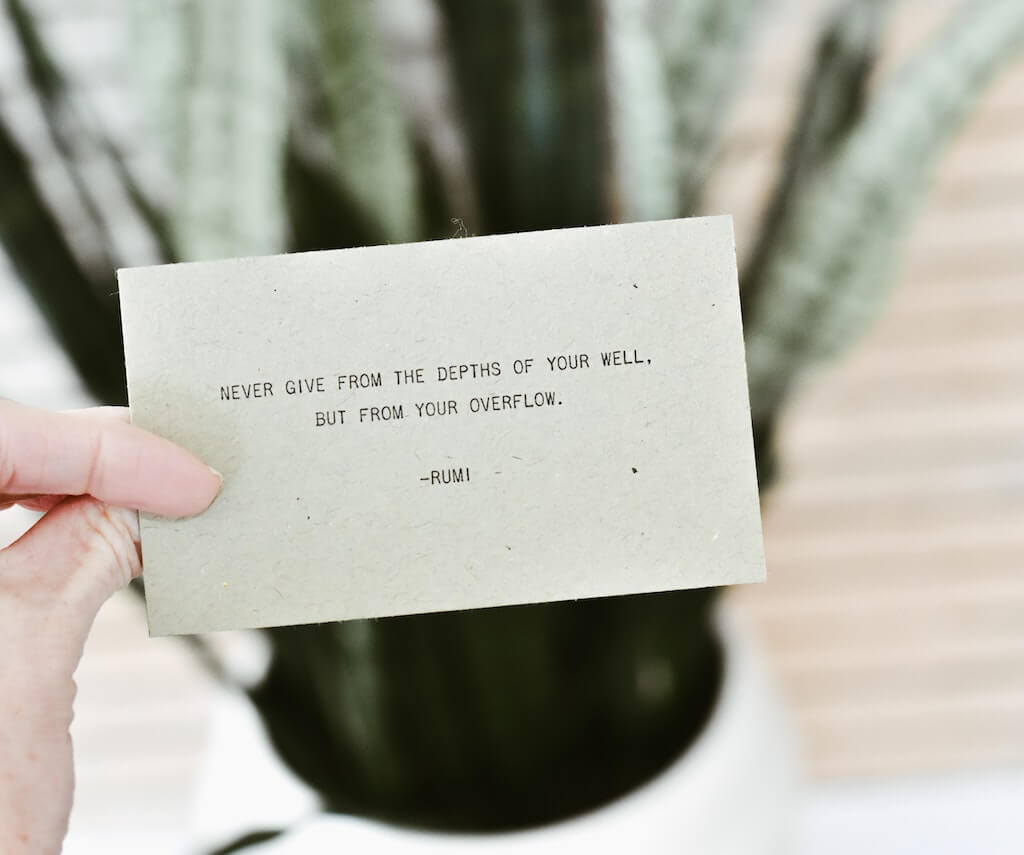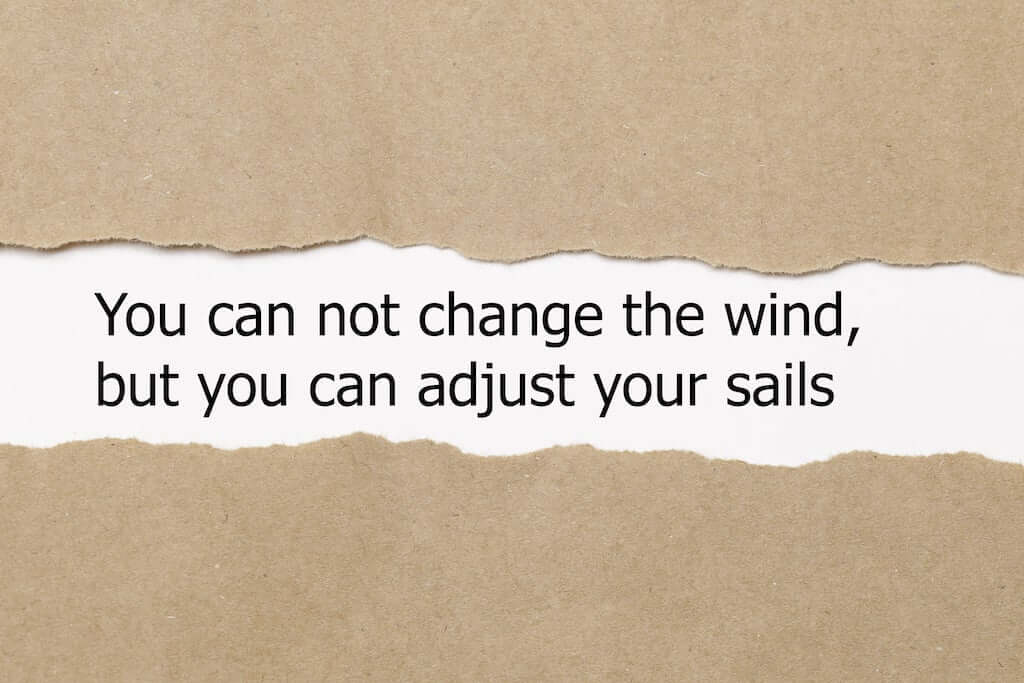Sustainable Caregiving Strategies
Strategy: Compassion
Consistent stress from caregiving can cause burnout resulting in more stress because our coping mechanisms are no longer effective at restoring our energy. In this state, we are more easily overwhelmed and more quickly irritated. We have trouble sleeping which adds to the negative cycle. Empathy drains us even further and we no longer feel compassion for our care recipient, friends, family, strangers or ourselves. Love feels elusive.

When we hear about caregivers who feel tremendous gratitude for the opportunity to care for a family member, it can feel like another failure on our part. If we are experiencing burnout or compassion fatigue, gratitude is often not within the realm of possible emotions.
“Compassion is about giving all the love that you’ve got.”
Cheryl Strayed
Whether we are experiencing burnout, empathic distress, or compassion fatigue, a type of post-traumatic stress disorder, PTSD, we may look into the mirror and wonder who we have become. Returning to our compassionate selves requires that we identify the path that led us to our current state and then, change direction. We may re-define and increase self-care activities. We might adjust boundaries or routines so that self-care is a priority and is protected. We may decide to add more help or try a different type of help. We might re-evaluate venting opportunities. Once we get the formula dialed in and our compassion is replenished, it can be like putting on glasses with a new prescription, but instead of seeing things clearly again, we feel things clearly again.
Definitions:
Compassion fatigue:
1. The physical and mental exhaustion and emotional withdrawal experienced by those who care for sick or traumatized people over an extended period of time.
2. Apathy or indifference toward the suffering of others as the result of overexposure to tragic news stories and images and the subsequent appeals for assistance
Burnout:
Exhaustion of physical or emotional strength or motivation usually as a result of prolonged stress or frustration.
Other research indicates that empathy, rather than compassion, fatigues.
Empathic Distress:
“A strong aversive and self-oriented response to the suffering of others, accompanied by the desire to withdraw from a situation in order to protect oneself from excessive negative feelings.” – Tania Singer and Olga Klimecki
Compassion and empathy connection:
Compassion stimulates areas of love and connectedness in the brain. Empathy triggers pain regions. Tension results when we feel the pull of compassion, yet distance ourselves from the suffering that comes with empathy, two competing instincts. It is distressing. When we make a choice to move toward and into the uncomfortable space, it is compassion that grounds us, then propels us into action. Acting with compassion strengthens our compassion muscles because compassion is not only innate but is learnable and contagious. A Buddhist definition of compassion is, “When love meets suffering and stays loving.” We instinctively distance ourselves from suffering. When we act with compassion, we turn toward suffering, lean into it. We face fear and decide we can handle it.

Compassion and boundaries:
As caregivers, we face many common barriers that impede us from acting with compassion, including exhaustion, anger, resentment, and fear. When our boundaries are consistently crossed, these barriers increase in size and intensity. As kids, we ooze compassion. As caregivers, it can feel like our compassion has all oozed out. This leaves us feeling empty and angry and wondering who we have become. Mindfulness helps us maintain and protect our boundaries. It is these boundaries that help protect our compassion reserves.
We could say that healthy boundaries are inspired by compassion; compassion for ourselves, compassion for our caree and compassion for those who help us care for our caree. Compassion helps us reinforce our boundaries in a way that maintains relationships and maintain an overall sense of well-being. Boundaries help us protect our compassion reserves by establishing limits that prevent a build up of resentment and anger.
Imagine:
Imagine your compassion reserves are in a blue heart-shaped pillow and you are hugging this pillow. It gives you comfort and you are protecting it. You are holding your compassion and sitting in a fluffy cloud, a cloud of calm and clarity. The cloud boundaries shift. You can’t see or touch them, but they are there, protecting you and your compassion reserves. Outside the cloud is the chaos of life, but the area within the circle, around you remains calm because the boundaries work to protect your compassion reserves. When someone starts to cross your boundary, channel the Rolling Stones and say “Hey, You, Get off of my cloud”, but say it with compassion.
What do I need in this moment?
In the moment, when the emotions are swirling imagine giving yourself a big hug. You deserve it. This is hard. Ask yourself the question, “What do I need in this moment?” Take a few deep breaths and sit with that question. You might then ask, “What do we need in this moment?” These questions will lead us to compassion. If we can be compassionate with ourselves while feeling these powerful emotions, the barriers, mentioned earlier, dissipate. We can then accept our situation, our challenges, and our shortcomings. We can more clearly see the compassionate way forward.
“If your compassion doesn’t include yourself, it is incomplete.”
Jack Kornfield
Seamless Practice

Reflect:
- Reflect forward. Imagine that you have developed a foundation of mindfulness, cultivated self-compassion and are direct and honest in communicating boundaries.
- How does the caregiving experience look different than the current situation?
Journal:
- Consider this quote by Rumi, “Never give from the depths of your well, but from your overflow.” Describe what it feels like to be low on love, to be giving from the depths of your well.
- Starting with yourself, how can you begin to replenish your well?


Apply:
- Ask yourself each day, as often as necessary, “What do I need to replenish my feelings of well-being?”
- “If your compassion doesn’t include yourself, it is incomplete.” – Jack Kornfield Using this quote as inspiration, develop a mantra and place it prominently as a reminder to fill your well throughout the day.
